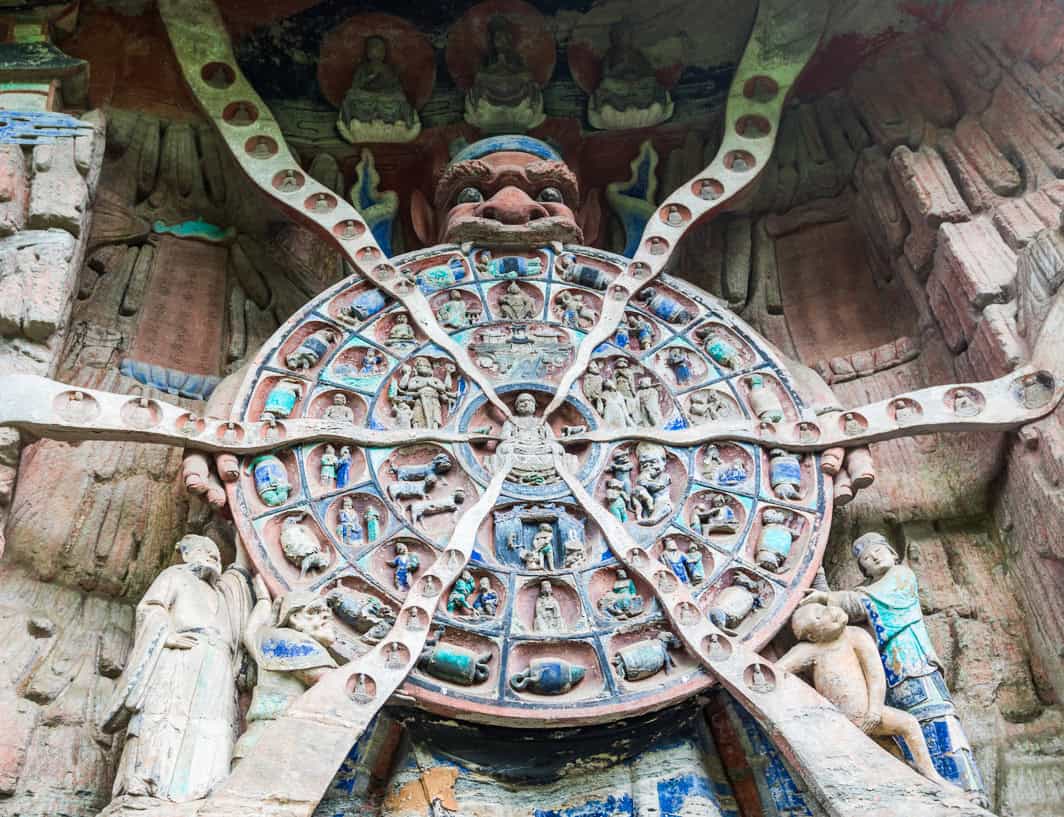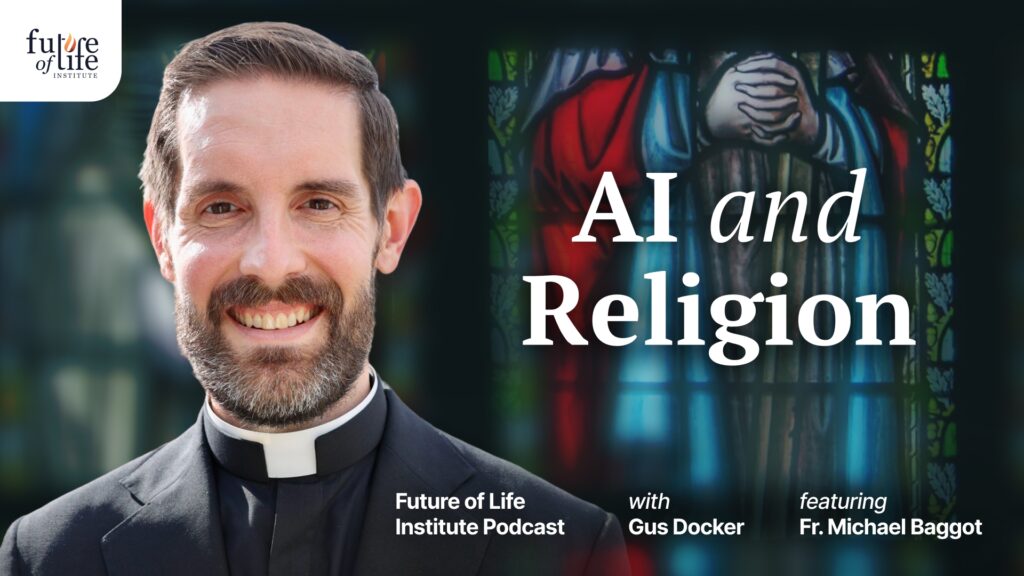A Buddhist Perspective on AI: Cultivating freedom of attention and true diversity in an AI future

Contents
Peter D. Hershock is Director of the Asian Studies Development Program at the East-West Center in Honolulu, Hawai’i. Hershock has authored or edited more than a dozen books on Buddhism, Asian philosophy and contemporary issues, including the personal and societal impacts of the attention economy and artificial intelligence in Buddhism and Intelligent Technology: Toward a More Humane Future.
The AI revolution needs to be put in perspective. The First Industrial Revolution resulted from harnessing the energy of burning fossil fuels. The possibility that industrial scale fossil fuel use might alter the Earth’s climate was first recognized after nearly a century, toward the end of the 19th century, and hard evidence of climate disruption has been mounting for more than fifty years. It is a sobering fact that humanity still cannot be certain of preventing that disruption from having catastrophic natural and societal consequences.
Today, the Fourth Industrial Revolution is well underway and accelerating. According to the techno-optimist seers of Silicon Valley, this AI-facilitated intelligence revolution is setting humanity on a glidepath into utopian futures of nearly effortless satisfaction and frictionless choice. We should beware.
The Earth’s climate began to be altered due to human ignorance of recursive feedback loops between human actions and the planet’s climate, and this alteration continues due to the willful ignorance of business-as-usual conduct at the mounting expense of future generations. The AI-driven Fourth Industrial Revolution is weaving a much more intimately complex web of recursive feedback loops, and the timeframe of its risks becoming experienced realities is likely a matter of one or two decades, not centuries.
Perspectives of Traditional Religions on Positive AI Futures
An introduction to our work to support the perspectives of traditional religions on human futures with AI.
As a Buddhist philosopher, I recognize the positively transformational potential of AI. Machine learning systems are already accelerating scientific and technological advances, and it is easy to imagine them driving similar advances toward meeting such compassionate societal goals as eliminating hunger and ensuring universal access to healthcare. But if the Fourth Industrial Revolution is truly to benefit humanity it will not be enough merely to solve the technical “alignment problem” of ensuring that AI systems deliver what designers and users want. It will entail resolving the “alignment predicament” of conflicting human values being recursively amplified by algorithmic systems that are increasingly adept at predicting and shaping both individual and societal wants and needs. AI is holding up a wish-fulfilling mirror to humanity. What we see looking into it is not reassuring.
Buddhism 101
Religions vary greatly. But all religions offer repertoires of practices for realizing what matters most for leading lives that are both well-lived and worth living. Buddhism is a family tree of such traditions that date back over 2,600 years to a teacher known as the Buddha or the Awakened One. As varied as they have become, the repertoires of these traditions are all rooted in three shared commitments: ending the suffering of all sentient beings; seeing all things as interdependently arising and without any fixed nature or identity; and recognizing that it is neither fate nor chance that determines what we experience in life, but our karma—our values and intentions and the ways we enact them.
Importantly, the aim of Buddhist practice is not predefined. Realizing nirvana simply means “blowing out” the causes of suffering, conflict, and trouble through cultivating ever greater wisdom and compassion—a process of becoming ever more freely present and committed to embodying the responsive virtuosity needed to foster ever more liberating relational dynamics for all.
That is a lofty aim. But as the early Buddhist compendium, the Dhammapada, encouragingly notes: “All things are preceded by mind, led by mind, made by mind.” Just as a cart follows the footsteps of the ox drawing it, our lives unfold as a karmic function of what matters most to us—the patterns of our values and intentions, our likes and dislikes, our habits of thought and feeling, and the words and deeds through which we express them. This is encouraging because we can change our minds and what matters most to us. That process begins with the effortful cultivation of freedom-of-attention. And that is why the current developmental trajectory of AI is so risky.
The Existential Risk of the Digital Attention Economy
At the commercial heart of the Fourth Industrial Revolution is the digitally-mediated attention economy. Although we typically think about attention as a kind of generic currency that we “spend” on things, digitally captured attention generates and transmits data about what matters to us, how we respond to it, and what changes over time. Although AI is now being referred to as a new general-purpose technology, unlike all previous technologies, intelligent technology is not a passive conductor of human wants and needs. It is an active and innovative amplifier of human values and intentions and of the conflicts existing among them.
Ubiquitous digital connectivity and the global attention economy are thus yielding unprecedented epistemic powers to predict human behaviors, beliefs, and desires, but also equally unprecedented ontic powers to produce patterns of thought, speech, emotion, and action, and to reinforce the values and intentions informing them. These are powers to sculpt who consumers and citizens become, not through acts of coercion, but through algorithmically reinforced craving and the curation of choice- and decision-making environments—powers to transform the human experience from the inside-out.
Moreover, as machine learning and generative AI systems become increasingly adept at anticipating, interpreting, and enacting our intentions, they are performing as karmic intermediaries, doing so on digital platforms that valorize competition, convenience, choice, and control, and with reward structures that foster addictive engagement, reinforce habits of thought and feeling, and accelerate desire turnover.
The Ethics of Human-Technology World Relations
Intelligent technology clearly has tremendous positive potential. But based on its design goals of algorithmically engineered attention capture, the digital attention economy is placing at risk our capacities for cultivating true freedom-of-attention. Without freedom-of-attention, there can be no true freedom-of-intention. And without freedom-of-intention, the line between choice and compulsion dissolves.
From a Buddhist perspective, the path to leading truly free lives begins with effortfully cultivating freedom-of-attention. If intelligent technology is going foster more equitable and humane futures, we will have to cultivate the attentive mastery, moral clarity, and wisdom needed to retool the karmic engines and computational factories of the Fourth Industrial Revolution. That is possible. But it is not a given, and it is work that cannot be done alone. As the Japanese Zen master Dōgen said of the hard but joyous work of clearing pathways to liberation, it is work that can only be effectively carried out shoulder-to shoulder.
Resolving the AI alignment predicament will require ever greater clarity about how humanity has arrived at this juncture and deeply shared global commitment to engendering truly liberating human-technology-world relations. AI ethics is ultimately an ethics of the future of humanity. Yet, all ethical systems have blind spots. Given that, our aim should not be crafting a single global ethical system but fostering the emergence of a global ethical ecosystem in which the differences among ethical systems—sacred as well as secular—become resources for mutual contribution to human and planetary flourishing. If the climate and environmental crises of the last century have taught us anything, it is the value of diversity.
That is a statement that might mean very little if diversity is just another word for plurality or variety. The Buddhist teachings of interdependence and karma open possibilities for thinking diversity otherwise. Variety is a numeric measure of multiplicity—something that can be both seen at a glance and mandated. In contrast, diversity is a relational index of the degree to which differences are the basis of mutual contribution to sustainably shared flourishing—a relational quality that is evident, for example, in the coordination among species in a healthy ecosystem, but absent in a zoo where there is never more than species variety. Diversity entails not just differing-from one another but also differing-for each other in ways that are appreciatively valued.
If technologies are relational systems for expanding the scales at which human values and intentions are enacted, the likelihood that AI will benefit humanity as a whole will depend on it exemplifying a diversity of intelligences, including ethical intelligences. This will entail resisting the monopolistic tendencies of platform capitalism and the karmic cul-de-sacs that result when network growth is a function attention capture and desire turnover rather than responsive virtuosity. From a Buddhist perspective an ethically sound retooling of the karmic engines of the 4th Industrial Revolution will begin by developing human-technology-world relations based on:
- supporting intelligent human practices, rather than first supplementing and eventually supplanting them with smart services
- fostering concentration rather than distraction
- promoting the pursuit of both freedom-of-attention and freedom-of-intention
- and realizing environments conducive to the effortful cultivation of appreciative and contributory virtuosity.
Crucially, just as virtuosic musical performances establish new standards of musicianship, valorizing appreciative and contributory virtuosity entails embodied commitment to setting ever higher standards of ethical excellence—new standards of both responsibility and responsivity. We should not settle for less.
About the Future of Life Institute
The Future of Life Institute (FLI) is a global think tank with a team of 20+ full-time staff operating across the US and Europe. FLI has been working to steer the development of transformative technologies towards benefitting life and away from extreme large-scale risks since its founding in 2014. Find out more about our mission or explore our work.
Related content
Other posts about Religion

The Future and the Artificial: An Islamic Perspective

On AI, Jewish Thought Has Something Distinct to Say


